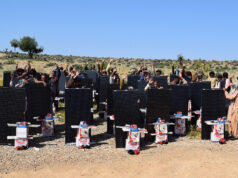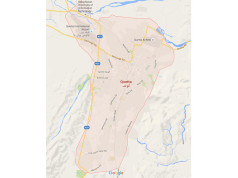Aneela Riazuddin
Sexual harassment at the workplace in Pakistan is no longer a myth but has become a starch reality, which often goes unaddressed.
The Convention on the Elimination of All Forms of Discrimination Against Women (CEDAW) defines sexual harassment as: “including such unwelcome sexually determined behavior as physical contact and advances, sexually colored remarks, showing pornography and sexual demand, whether by words or actions. Such conduct can be humiliating and may constitute a health and safety problem; it is discriminatory when the woman has reasonable grounds to believe that her objection would disadvantage her in connection with her employment, including recruitment or promotion, or when it creates a hostile working environment”.
It is ironic that even an organization, that itself reports harassment cases, not only harbors harassers but even protects them.
Naila, holding a key position in a media organization, had become a victim of harassment by her former colleague, Hamid.
Upon rejecting his marriage proposal, Hamid used several tactics to harass Naila which included sending her obnoxious texts, threatening calls, and blackmailing.
When Naila bought the matter up with her higher-ups they tried to sweep the matter under the carpet and advised her not to mention this matter to anyone and that they would handle the matter internally.
Despite the passage of several weeks, no action was taken against Hamid, who was still continuing with his tactics. He now even published a fabricated news story in the newspaper, he worked for, against Naila’s deceased father who had held a key position in one of the government organizations.
Now, this was the last nail in the coffin for Naila, infuriated and hurt over the story published against her late father she called up the newspaper editor and told him the situation, and asked him to retract the story and publish an apology. He said he would talk to Hamid and would publish an apology. Unfortunately, no action was taken again.
Seeing that her cries are falling over deaf ears she decided to approach the Federal Ombudsman Secretariat for Protection Against Harassment (FOSPAH) and registered a case against Hamid.
As soon as the case was registered and show cause notices were served to Hamid, Press unions as well as her Editor in Chief jumped in and tried in their own ways to convince Naila to take back her case.
“ Either you can resign or take back your harassment case”, these were the words uttered by Naila’s boss of several years.
As far as the media watchdog was concerned they also tried to convince Naila to retract the case as if word got out that there were harassment cases in the media organizations it would not bode well for them. They would punish Hamid by canceling his membership.
In a dilemma of whether to save her job or her integrity and principles, not with standing pressure she decided to pursue the case and gave her statement before the Judge of the Federal Ombudsman and presented the evidence of harassment.
After seeing that the Ombudsman Judge thought I had a solid case and credible action can be taken Hamid the Press Union decided to jump in again and told Naila that Hamid will give an undertaking, which would be signed and witnessed by Union leadership, that he would never approach her or her family under any circumstances and will also publish a retraction in his paper and an apology as well and he should not be made to appear before the court. Naila after consultation with several senior members of the press agreed to the offer and told the Ombudsman Judge that the matter has been handled internally. Upon which the Judge asked Naila if she was satisfied with the Press Union’s decision she will dismiss the case in her favor and can also order the reinstatement of her job. But Naila refused on the ground that she would rather be jobless than work for people who have no respect for women. The Judge fully endorsed Naila’s decision.
Even though things did work out for Naila thanks to FOSPAH and press club leadership there are still many women out there, who are not so lucky and often have to bear with the harassment for keeping their jobs.
Statistics from the Federal Ombudsman Secretariat for Protection Against Harassment (FOSPAH) show that the complaint rate for sexual harassment in the workplace has increased from 432 in 2019, to 535 in 2020. Moreover, the FOSPAH Annual report 2022 outlined the following figures; the total number of complaints between 2018 to 2022 was 2169, in the government sector there were 582 lodged by women and 148 by men. In the private sector, there were 994 complaints from women and 445 by men.
Naila is just one example of women facing harassment in their workplace. Female journalists are often made to choose between their careers and their principles. They are not only pressurized by their bosses and peers not to report harassment cases but often by their families in order to save the “Family Honor”. But a line has to be drawn somewhere and thankfully Pakistan has made harassment laws. Now under section 509 of the Pakistan Penal Code, insulting the modesty of women or sexually harassing them, is a crime. The perpetrator of this crime may be punished with imprisonment, which may extend to 3 years, or a fine up to PKR 500,000 (5 lakh), or both.
Making laws for the protection of women is undoubtedly a milestone in a country like Pakistan which is still dominated by male supremacy, But more needs to be done at the social and home level we as mothers need to teach our sons that women are not inferior or just show pieces they are their equal counterparts who deserve respect like any other human being.
Note: The names have been changed to protect the identity of the concerned.
Disclaimer: Views expressed in this article are those of the author and Balochistan Voices does not necessarily agree with them.
Share your comments!








